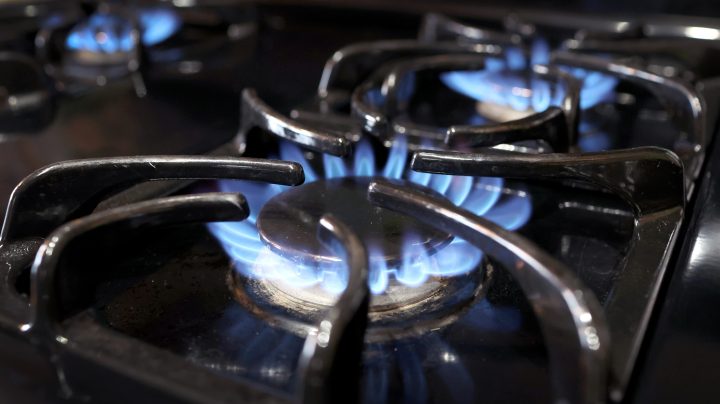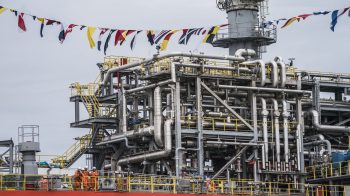
Natural gas buyers and sellers are hedging less against price swings
Natural gas buyers and sellers are hedging less against price swings

Over the past six months, the price of natural gas has fallen by more than half. That’s good news for natural gas consumers, particularly utilities that burn it to produce electricity.
But it’s not-so-good news for natural gas producers. After a very profitable year following Russia’s invasion of Ukraine, they’re now confronting a change in fortunes. To protect themselves from this kind of volatility in energy prices, companies in the industry literally hedge their bets.
Last year, prices of natural gas hit their highest level since around 2008, according to Clark Williams-Derry, an analyst at the Institute for Energy Economics and Financial Analysis.
“One of the big reasons was that the U.S. was exporting more and more natural gas in the form of liquefied natural gas,” he said.
Much of it went to Europe, as the continent worked to wean itself off Russian natural gas. Prices peaked near $9 per million British thermal unit.
“It’s now below $3, around $2.50 per mmBtu. So it’s a tremendous collapse,” Williams-Derry said.
And that’s why gas producers hedge, according to Bob McNally, president of Rapidan Energy Group. It’s a strategy that locks in prices based on expectations for the future.
“It’s insurance against a bad thing happening,” he said. “A bad thing here would be the price moves against you.”
But hedging can be risky.
“If you’re an oil producer, and you pay a lot of money to insure against the price collapse, but it turns out prices went up — well, now your investors aren’t so happy, because, in retrospect, you look like you were unwise,” McNally said.
Hedging has declined recently in the natural gas industry. Last year, 52% of production was hedged. This year, it’s down to 36%, according to consultants at Energy Aspects.
It’s not just sellers that hedge; buyers do too. And those buyers may be cutting back as well, said RJO Futures’ senior market strategist Eli Tesfaye, whose clients include agribusinesses that purchase fertilizers made with natural gas.
“From their standpoint, at these weaker levels, they don’t need to hedge,” he said. “It’s not going to impact their costs that much.”
The bottom line? Given the decline in hedging, natural gas producers and consumers are more exposed to further swings in prices.
There’s a lot happening in the world. Through it all, Marketplace is here for you.
You rely on Marketplace to break down the world’s events and tell you how it affects you in a fact-based, approachable way. We rely on your financial support to keep making that possible.
Your donation today powers the independent journalism that you rely on. For just $5/month, you can help sustain Marketplace so we can keep reporting on the things that matter to you.

















